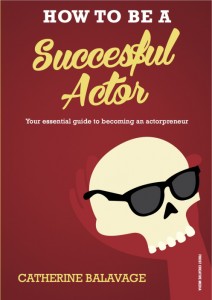There has been some uproar after Russell Crowe said that female actors should act their age. Meryl Streep came out in support of him and The Guardian did a great quiz on actors and playing age.
Russell said in an interview with the Australian Women’s Weekly: “To be honest, I think you’ll find that the woman who is saying that [the roles have dried up] is the woman who at 40, 45, 48, still wants to play the ingenue, and can’t understand why she’s not being cast as the 21-year-old, Meryl Streep will give you 10,000 examples and arguments as to why that’s bullshit, so will Helen Mirren, or whoever it happens to be. If you are willing to live in your own skin, you can work as an actor. If you are trying to pretend that you’re still the young buck when you’re my age, it just doesn’t work. I have heard of an actress, part of her fee negotiation was getting the number of children she was supposed to have lessened. Can you believe this? This (character) was a woman with four children, and there were reasons why she had to have four children – mainly, she lived in a cold climate and there was nothing to do but fornicate all day – so quit arguing, just play the role!”
Unfortunately that is not right at all. While some women will not want to play older, I have met a few, the roles for women are usually terrible when under 40: girlfriend, stripper, ‘the girl‘, a whore or merely window-dressing. When a women is over 40 the roles do not realistically reflect women’s lives. We are usually the mother, grandmother, crone or witch.
Jezebel blogger Rebecca Rose had this to say: “ALERT: Hollywood movie actor person Russell Crowe is fed up with all the old ladies who dare to want to be cast as something other than old spinsters or whatnot. Quit complaining that you’re cast in a role where your character has ‘nothing to do but fornicate all day’ and make a bunch of babies. Stop demanding that film-makers try to expand the depth of your character beyond ‘broodmare’. Just play the role, OK? Funny how Crowe doesn’t bother to offer any opinion about the mind-boggling legacy of Hollywood men playing romantic leads to women 10, 20, 30, and sometimes 40 (!!!!!) years younger than them,” Rose added. “Because it’s clearly the sad old women daring to pretend they are outside their actual birth ages that are ruining Hollywood … Thanks Crowe for reminding us, yet again, that women are always held in contempt for doing anything remotely similar to what their male counterparts do without reproach.” Very good points. Men do not tend to ‘play their age’ and their on-screen wives are usually significantly younger than them.
Amy Gray wrote on Junkee.com, “The ‘ingenue’ roles Crowe refers to are the only ones readily available for women; on the flip side, the majority of male characters in film and TV are aged between their 30s (27%) and 40s (31%). That could be because we’re more likely to want to watch lead characters based on their fuckability – and the older a woman gets, as any executive will tell you, the less faceable she becomes.” Crowe is 50 and also said “The point is, you do have to be prepared to accept that there are stages in life. So I can’t be the Gladiator forever,”
What do you think?
If you are an actor then check out my book How To Be a Successful Actor: Becoming an Actorpreneur. It is available in print and in all eBook formats on both Smashwords and Amazon. It has had 5 five star reviews.





